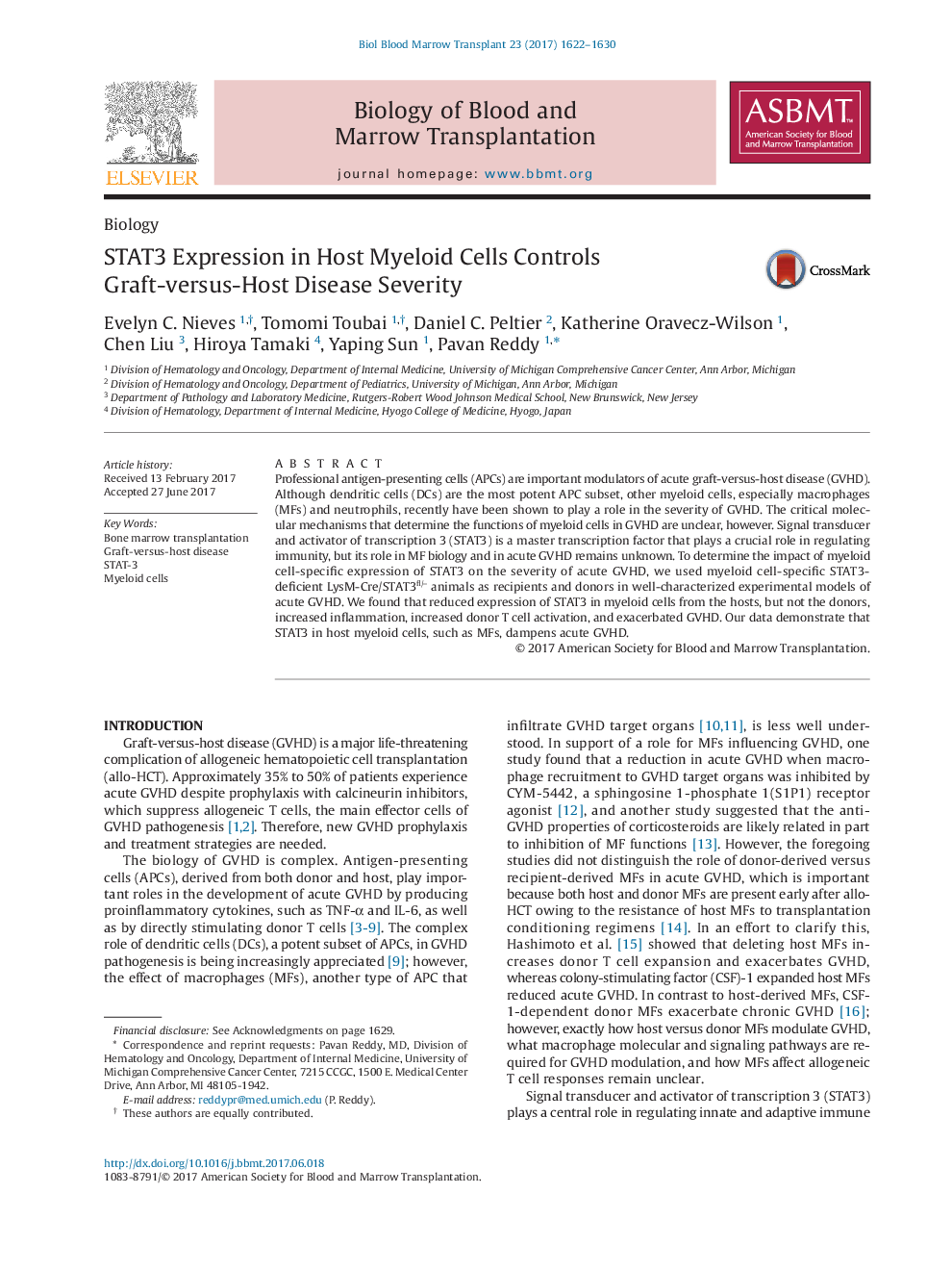| Article ID | Journal | Published Year | Pages | File Type |
|---|---|---|---|---|
| 5524046 | Biology of Blood and Marrow Transplantation | 2017 | 9 Pages |
â¢STAT3 negatively regulates macrophage responses.â¢Expression of STAT3 in host-derived myeloid cells, such as macrophages and neutrophils, restrains alloimmune responses and reduces GVHD severity.â¢Expression of STAT3 in donor-derived myeloid cells is dispensable for GVHD severity.
Professional antigen-presenting cells (APCs) are important modulators of acute graft-versus-host disease (GVHD). Although dendritic cells (DCs) are the most potent APC subset, other myeloid cells, especially macrophages (MFs) and neutrophils, recently have been shown to play a role in the severity of GVHD. The critical molecular mechanisms that determine the functions of myeloid cells in GVHD are unclear, however. Signal transducer and activator of transcription 3 (STAT3) is a master transcription factor that plays a crucial role in regulating immunity, but its role in MF biology and in acute GVHD remains unknown. To determine the impact of myeloid cell-specific expression of STAT3 on the severity of acute GVHD, we used myeloid cell-specific STAT3-deficient LysM-Cre/STAT3fl/â animals as recipients and donors in well-characterized experimental models of acute GVHD. We found that reduced expression of STAT3 in myeloid cells from the hosts, but not the donors, increased inflammation, increased donor T cell activation, and exacerbated GVHD. Our data demonstrate that STAT3 in host myeloid cells, such as MFs, dampens acute GVHD.
